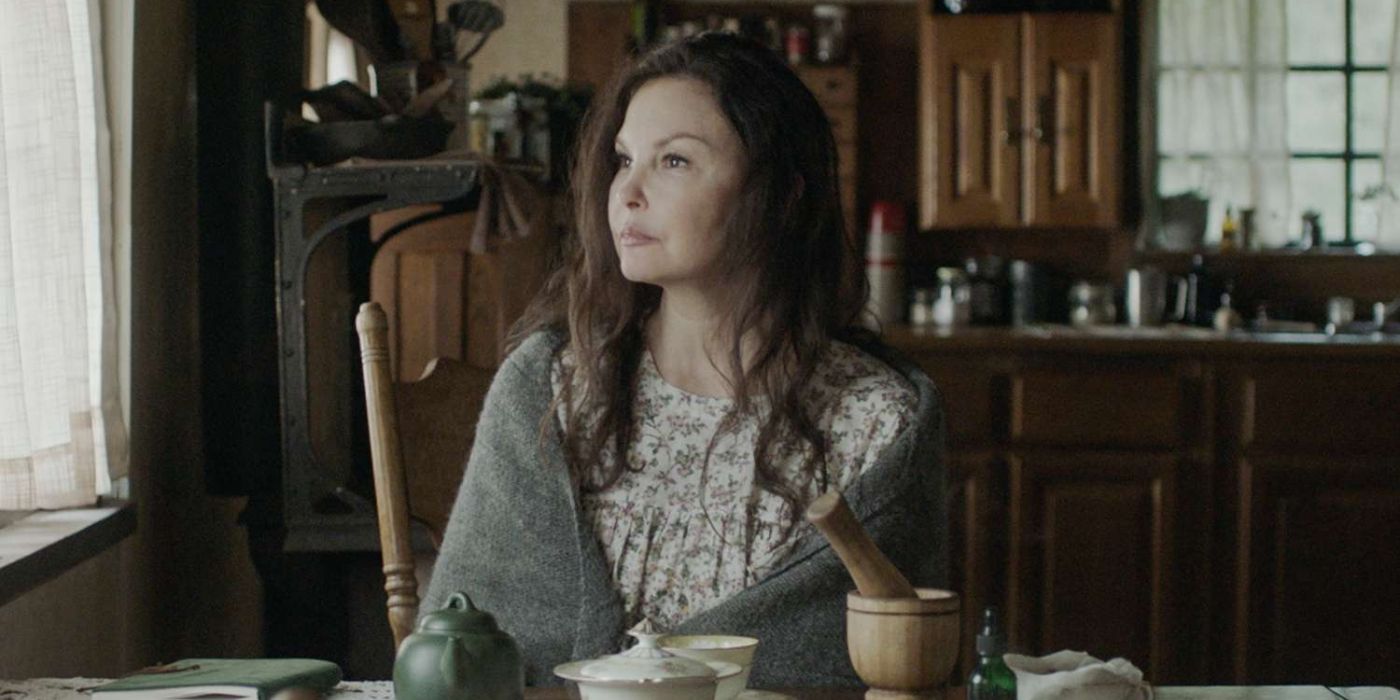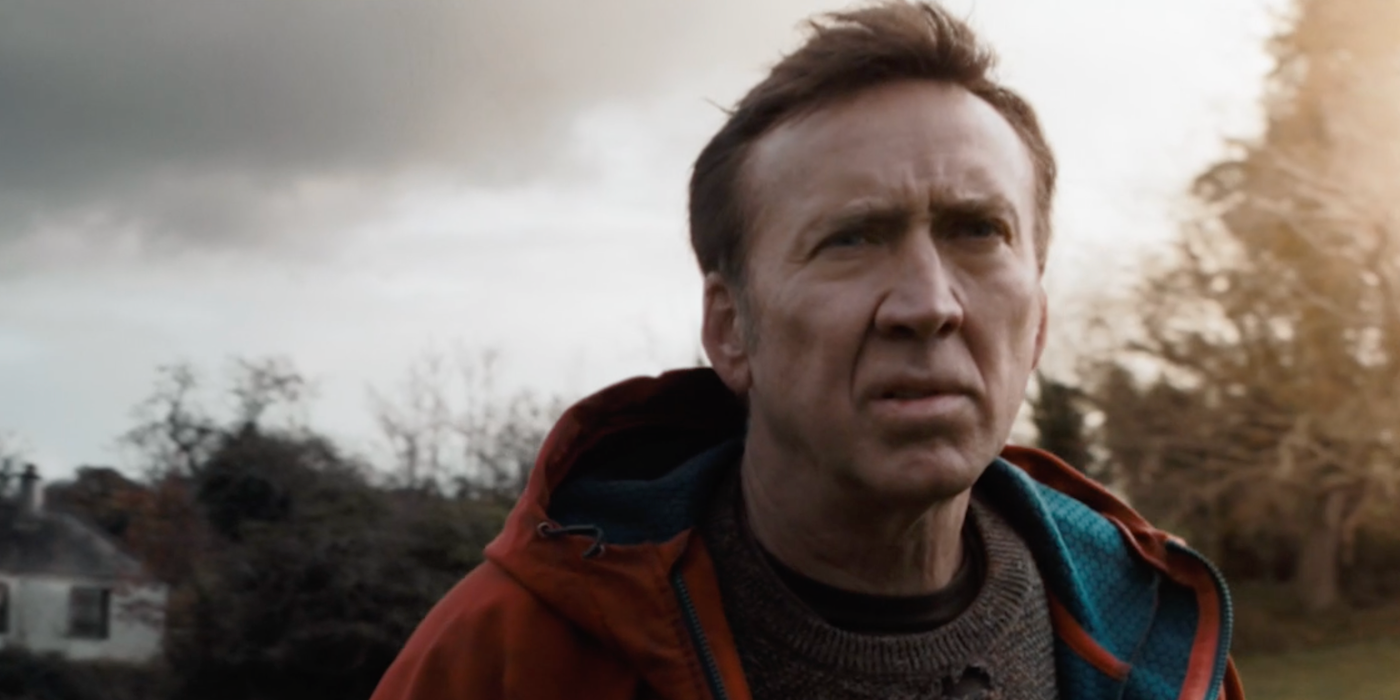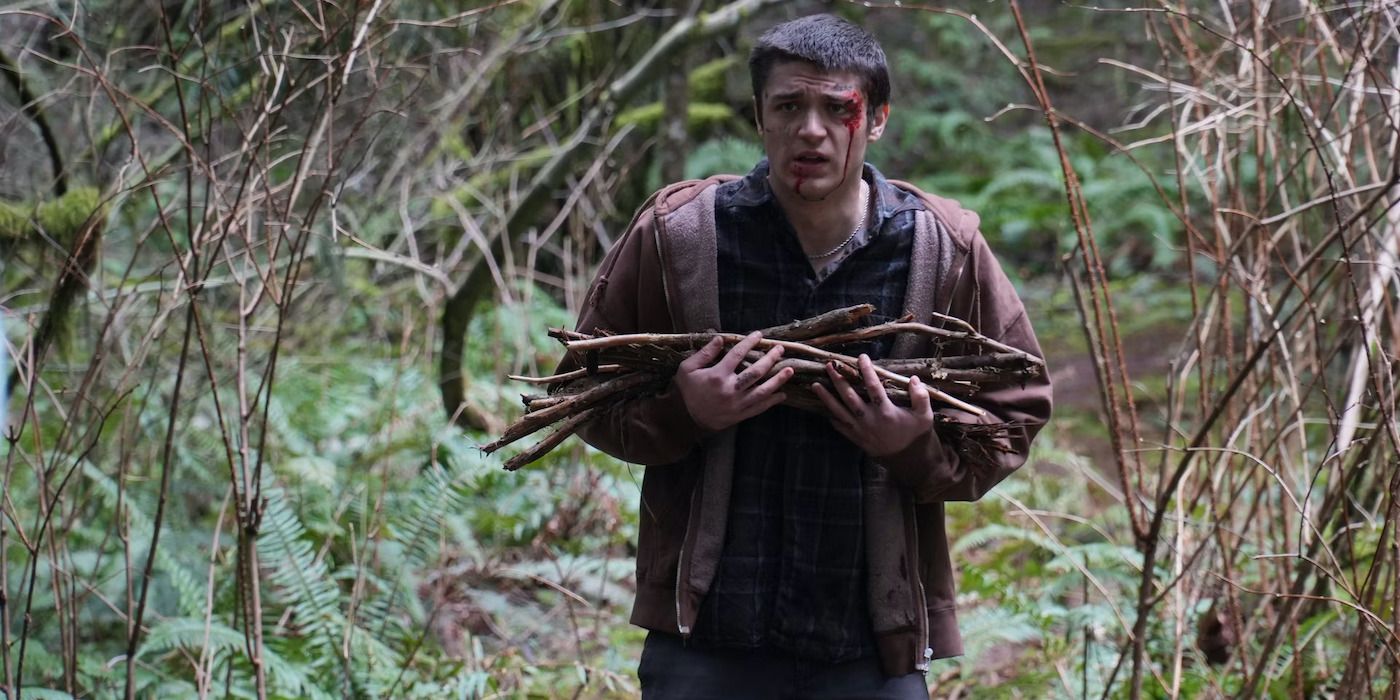The Big Picture
- Frankly, Lazareth is lacking any bigger picture.
- It's a shortsighted apocalypse story doesn’t have all that much to say.
- The film follows a familiar template that doesn’t have enough of that new doomsday smell.
Apocalyptic films with a minuscule focus, like Lazareth, are a dime a dozen. Filmmakers like Alec Tibaldi are more interested in microcosmic societal reactions than global or national pandemonium (they’re also cheaper to produce). Lazareth resembles countless copycats: pioneer lifestyles, woodland isolation, and the threat of transmittable sickness. Tibaldi’s vision is narrow and stripped down, finding worry in a sanctuary under attack, but also tedium and monotony as this scrawny doomsday aside follows in footsteps tamped nearly flat.
Ashley Judd’s been pickier about film roles, which makes her choice to portray Lee in Lazareth somewhat noteworthy. Lee is the matriarch of a makeshift family consisting of her orphaned nieces Imogen (Katie Douglas) and Maeve (Sarah Pidgeon). In the decade since a mystery illness spread like wildfire, Lee protects their homestead “Lazareth” from contagions and intruders. No one comes in; she only goes out (covered in protective wear). It’s not hard to see why Judd might want to take a crack at playing Lee, a woman bound by duty in self-destructive times, but her efforts don’t amount to much under the film’s deflating conditions.
Lazareth thinks small because it must. Tibaldi chases tension between relationships, hardly acknowledging the deadly virus besides an early shot of a trespasser itching their skin. Character arcs are influenced by questions we ask as audience members, which mirror what Imogen or Maeve might ponder. Lazareth and Lee’s bible-like commandments teeter the line between safehouse and prison, but that duality hardly begets any thrilling conclusion. Basic subgenre setups lead to equally basic explorations of survivalist frameworks, dulling points that struggle to stick like a cheap magnetic dart bouncing off a felt board.
'Lazareth' Is Like a Generic Episode of 'The Walking Dead'
The introduction of Shazam! actor Asher Angel as the tattooed and wounded Owen establishes a middling conflict. Lee must decide if she’ll welcome the bleeding boy and his teenage hormones into her meticulously overseen domain. Maeve and Imogen only know Lazareth’s dictated boundaries — they’ve never interacted with outsiders except for the pleading beggar from the film’s introduction. Tibaldi doesn’t try and fool generations of The Walking Dead viewers who’ve been programmed to expect certain plot elements involving communities that take in guests. Boy meets girl; mother figure gets protective; girl sides with boy — it’s all so formulaic, and even worse, blandly derivative.
There’s nothing destructively wrong with the performances. Judd is giving “obsessively parental” as a vibe and brings a level of intensity to her performance that sadly doesn’t inform the film’s DNA. Douglas and Pidgeon mimic a shut-in awkwardness that translates into a handful of nearly interesting engagements, only to get lost to the story’s routine composition. Without defining the supposedly uncivilized and crumbling world around Lazareth, a subplot involving punk kids on dirt bikes and all-terrain vehicles feels incomplete. Tibaldi’s aversion to illustrating what surrounds Lazareth plays against its simplistic intentions and undercuts a movie that could easily have been a shorter feature. Whatever commentary the film wagers against humanity is staler than week-old communion wafers.
It’s an investigation into authoritative control and dependence that lacks both. Tibaldi parallels COVID-19 outbreaks and subsequent curbings, whether intentional or not, which adds a murkier read to the definitionless scenario. Lee’s motivation to keep Lazareth in secluded order stems from fears about returning to normal when that normalcy is eviscerated by shattering unknowns, much like many Americans experienced post-lockdown. Teases of falsified information and governing bodies deciding the fates of many take on a different shape when applied to Lee’s position, which becomes harder to shake as Lazareth advances. In tightening the film’s scope to the size of a penny, Tibaldi loses sight of the bigger picture.
'Lazareth' Lacks Anything Memorable
Lazareth is a downsized apocalypse thriller begging for an “It Factor.” Tibaldi recycles the same beats drummed to death by everything from Bird Box to A Quiet Place, at least regarding the human characters. What’s telling is how most comparison points to Lazareth have something memorable attached — alien creatures, roving maniacs, yadda yadda — where Tibaldi’s diet rehash feels incomplete. It’s missing a meaty hook, which becomes hard to ignore as momentum starts to flatline. Lazareth is sluggish, low-energy, and not particularly suspenseful, but most of all, it squanders a stellar Ashley Judd performance in a period where her silver screen appearances are becoming scarcer and scarcer.

Lazareth (2024)
Lazareth will undoubtedly give apocalyptic thriller fans a spot of déjà vu, only they’ll be remembering better movies that find exciting ways to accentuate a story that falls flatter this time.
- I?m always going to be in line for an Ashley Judd movie.
- It has the bones of a solid pandemic take.
- Judging only technical accomplishments, it?s quite competent.
- There?s a lurching nature to storytelling momentum.
- That ?seen it before? feeling nags over and over, because we?ve indeed seen this before, with better execution.
- It?s a film that?s begging for a more colorful identity, not its weightless presentation.
Lazareth is now available to stream on VOD in the U.S.




